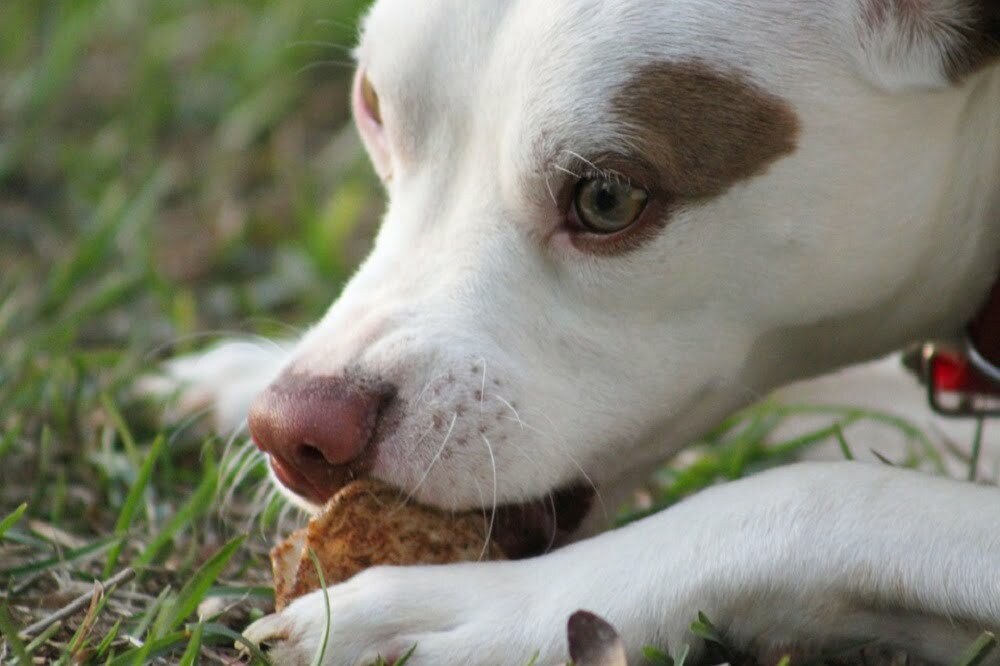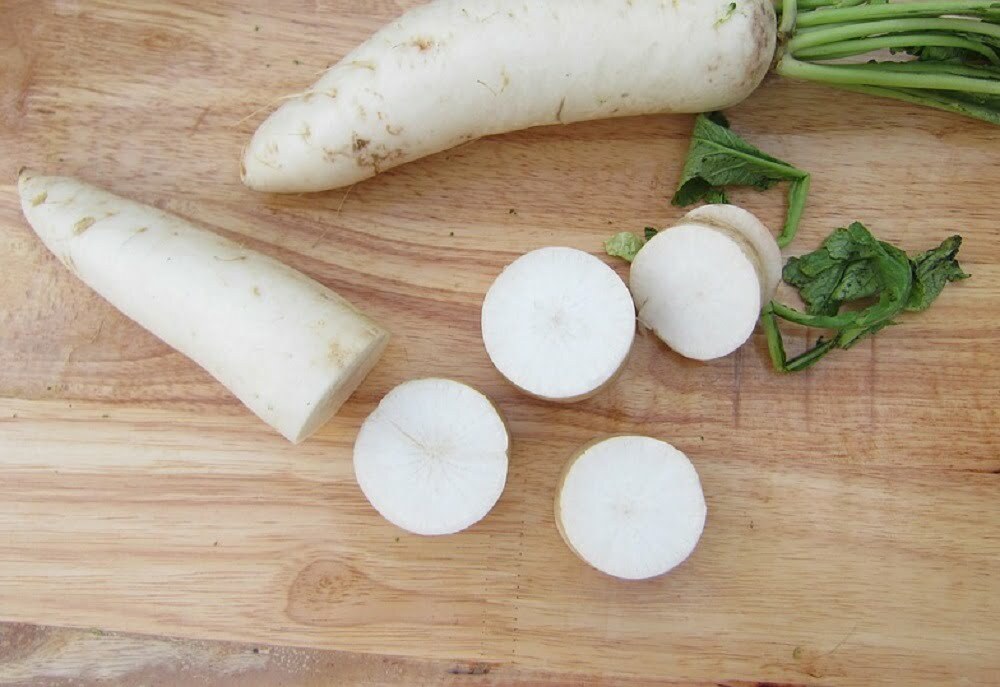If you have a dog, you will know that they will eat just about anything they can get their snout around. If it falls on the floor, if they find it outdoors, if it is in their general line of sight, then it is fair game for them to give it a good chewing on. This means that as a dog owner, we always have to have one eye open, because sometimes innocuous foods can actually be poisonous and toxic to our furry friends.
So, can your pup have some horseradish? Well, yes they can, as it isn’t poisonous. But, it is highly recommended you don’t give it to them to eat, because it can taste toxic. This would lead to irritation in their mouses, noses, throat, digestive system, and very possibly their urinary tract too. And no one wants that.
Horseradish won’t poison your dog, but it can make them very unwell. As human beings, we all know, only a little too well, how we can react to horseradish sauce and mustard, sometimes it really is not the most pleasant of things. Dogs are not used to eating spicy foods with that extra kick, and tastes like this can give them gastrointestinal problems.

This applies to everything horseradish by the way, including; cheese, sauce, mustard, leaves, and even plants. Today we will cover all the topics with you, if you want to know why, what would happen, and even if you want to hear the truth about some of those myths about dogs and horseradish, stick around, because we have all the info right here.
The basic version is that many dogs will be allergic to foods and can react badly. It will be irresponsible to give your dog any food that is not actually meant for dogs. For all you know, your dog could have an allergic reaction to horseradish and get very unwell thanks to its spicy nature, and you do not want that veterinary bill on your conscience.
Horseradish sauce/mustard; Is it dog friendly?
If you feed your dog horseradish in its mustard form, or in its sauce form, it will be a lot hotter than the plants and leaves it comes from. This is why it is highly inadvisable you let your dog eat this. If they do, they could get sick, and we meant literally. Feed your dog this stuff, and you can fully expect vomiting and diarrhea.
Think about how humans can react to this stuff for a moment. When you think about this, it makes perfect sense that it is not wise to feed it to a dog. Horseradish in humans can cause violent side effects in humans, including but not limited to; upset stomachs, bloody vomit, diarrhea, and in some cases, it can even cause miscarriages in pregnant women.
If it can damage a person so badly, it can certainly do damage to Fido too.
What about horseradish plants and leaves?
We know that mustard, and sauce is not a good option for a dog. But, what about the plants and leaves? Well, once they are cooked the horseradish plant and leaves lose their spiciness, or at least most of it.
Out of all the horseradish options, the plants and leaves nicely cooked are the best option for your dog as they are not poisonous, and their heat is gone.
However, even though a majority of the heat is gone, there is still a little there. So, when it comes to snack time for your dog, perhaps choose a safer vegetable?
What would happen if your dog ate horseradish?
If you do let your dog eat horseradish, whether you had no idea, or if it was totally by accident, the spice from it can have a plethora of negative reactions in your dog. We have listed some here;
- Bloating and gas (we all know how uncomfortable this is.)
- Diarrhea (get the old puppy pads out.)
- Excessive thirst.
- Painful stomach problems.
- Vomiting.
Can horseradish kill your dog?

Horseradish is very unlikely to actually kill your dog. It will more likely just make them very sick, and you will be a very unhappy pup and a lot of mess to clean up.
If you are worried about the health of your dog though, you should seek out the help of a vet, they will ease your mind and be able to tell you exactly what you should do to help them get better.
Barking at your questions.
With every topic in the world comes a range of questions, and of course the old myth, or old wives’ tale here or there. Weirdly enough dogs eating horseradish is a topic that seems to have a lot of myths around it, and there are plenty of questions pertaining to this.
So, we want to take the time today to address your weird and wonderful questions, put your mind at ease and properly combat some of these myths around dogs and horseradish.
“Is it possible for dogs to go blind from eating horseradish?”
If you’ve ever eaten a really spicy chili, such as a Habanero pepper, then you will know it can make your eyes water. Actually, capsaicin, which is the active component of chili peppers, that thing that makes you feel like your face is on fire, can actually turn you blind if you are exposed to it in its purest form.
This is an example we use because people seem to believe that dogs can go blind from eating horseradish sauce. This is a myth that probably started due to how spicy ingredients can make your eyes burn. However, there is absolutely no capsaicin in horseradish, and there are no instances of dogs going blind from eating horseradish either, not any horseradish of any variant. So this is a total myth.
“Will horseradish get rid of my dog’s cough?”
Some people also seem to believe that horseradish can soothe a dog’s coughs. However, any vet will tell you that this is not something that you should do.
It is understandable why people may relate to this though. Some people will take horseradish by mouth for UTI’s, kidney stones, fluid retention, respiratory tract infections, cough, achy joints, sciatica, colic, and more.
Horseradish is even rumored to fight bacteria, however, science has no evidence to back this up.
Since people have used horseradish to treat coughs in humans, we could understand where the rumor came from to use it for dogs’ coughs too. However, since we know what we do about horseradish, it is probably unwise to use horseradish to treat a cough in dogs. There are plenty of other options that you can use, options that are more proven to work in dogs coughs.
Even if it did work, you would be likely to replace the dog’s cough with some vomiting and diarrhea, and we don’t think your dog would be very grateful for that switch.
“Can horseradish get rid of worms in a dog?”
These old wives tales are wild. There is no evidence that horseradish can get rid of worms in a dog. If you believe that your dog has any type of parasite then you should seek out the guidance of a vet as worms should be treated immediately to protect the health of your dog.
There are, in fact, plenty of natural remedies promoted for dog worms, including pumpkin seeds, carrots, coconut, apple cider vinegar and so on. However, we do not think that giving Fido diarrhea with horseradish is really a good idea.
“Are there any health benefits to horseradish?”
Of course there are! Many of these myths actually seem to stem from hoe horseradish has been used for centuries in medicine. In fact there are three very big benefits from horseradish.
- Horseradish may have anticancer effects.
- Horseradish does have antibacterial properties.
- Horseradish may also improve respiratory health.
It is also known that in one tablespoon of horseradish you can benefit from only 7 calories, less than 1 gram of protein, less than 1 gram of fat, only 2 grams of carbohydrates, and 0.5 grams of fiber.
It also contains very small amounts of calcium, potassium, folate, magnesium, and other micronutrients all beneficial to the human body in small amounts. But remember what we say there, the human body. Just because something is beneficial to the human body does not mean it is also beneficial to animal bodies too. Humans and dogs are two very different animals, with very different dietary requirements.
You could assume that because something is good for humans it is good for dogs, but it is not, especially due to the spice.
Barking up the wrong tree
Dogs can have a bad reaction to horseradish, so it is best to keep them away from it, and it away from them. While it could reap health benefits, it is not worth the damage it can do.
No one wants to see their dog sick, and there are so many other things out there that are much better for your dog.
